Research Spotlight, Erin Dolan

Building Better Biologists: A New Program Trains the Next Generation of Science Educators
The University of Georgia (UGA) is home to a large and robust group of biology education researchers (BER). Collectively, this group has a long and strong record of training postdoctoral fellows who go on to pursue a variety of careers, including research and teaching intensive positions in higher education, positions in faculty professional development, and others. One of the reasons for the success is the diverse and collaborative environment in the social and behavioral sciences. Many faculty at UGA with research programs in biology education have ongoing collaborations with faculty in educational psychology, psychology, science education, higher education, and other disciplines.
A team co-led by Dr. Erin Dolan, an OIBR distinguished scholar, Georgia Athletic Association Professor of Innovative Science Education, and professor of biochemistry and molecular biology, and Dr. Logan Fiorella, also an OIBR distinguished scholar and associate professor of educational psychology, is fostering a new generation of BER through an exciting initiative funded by the National Science Foundation (NSF).
This project, titled “Preparing the Next Generation of Biology Education Researchers through Interdisciplinary Co-mentorship and Evidence-based Professional Development,” tackles a crucial challenge in the field of BER. Traditionally, BER research has been criticized for being isolated from other disciplines, limiting its impact, and hindering the development of robust theories on teaching and learning biology.
“Given the rich scholarly and training environment at UGA, and our collective networks and collaborations, we thought we could put together and facilitate a rigorous and supportive postdoctoral training program that was focused on cross-disciplinary research in biology education,” said Dr. Dolan.
She explains, “Imagine studying how students make decisions about careers in the life sciences or how students learn to solve life science problems without considering the science of motivation or problem-solving. That’s the kind of isolation we’re aiming to bridge.”
This new program directly addresses this issue. Biology education research investigates teaching and learning in life science fields by combining the priorities, worldviews, knowledge, and practices of biology with the research methods, tools, approaches, and theory from the social sciences. By leveraging UGA’s wealth of BER faculty and experts in social and behavioral sciences, the project will train postdoctoral fellows in a truly interdisciplinary environment.
Why is this important?
BER plays a vital role in improving how biology is taught and learned. It investigates how students develop as life scientists and come to understand life science concepts and their applications and implications. But without a strong foundation in other disciplines like psychology and education, BER research can struggle to build a comprehensive picture.
This research project aims to change that. Postdocs in the program will be co-mentored by BER faculty and researchers from other relevant fields. This unique approach will equip them with the tools and perspectives to conduct more impactful and theoretically grounded BER research.
Collaboration is Key
Dr. Dolan highlights a particularly rewarding aspect of the project: the collaborative spirit among faculty. “It has been such a pleasure to work with the faculty involved in the project,” she says. “Everyone is coming to the project with an open mind, generative spirit, and collegial ethos.”
This collaboration extends beyond the faculty. The project prioritizes equity and inclusion in its recruitment process. Potential applicants can participate in virtual office hours and submit “curiosity statements” instead of traditional research statements. This approach focuses on aligning applicants’ interests with the program’s goals, fostering a diverse and dynamic learning environment for the incoming postdocs. Dr. Dolan stated, “Applicants are responding very favorably to these elements,” pointing out “that it is one of the reasons they were attracted to apply to the program.”
The Road Ahead
The project is funded for three years, with postdocs receiving two-year appointments. While future funding from the NSF is uncertain, the potential for expansion is exciting. Dr. Dolan envisions recruiting additional cohorts in the coming years, allowing the program to continue its mission of building a new generation of well-rounded BER researchers.
This initiative promises to revolutionize BER by fostering a collaborative and interdisciplinary approach. By training the next generation of researchers to think outside the box, the program paves the way for a brighter future in biology education, ultimately benefiting students and the field.
More info.: Erin Dolan
Written by: Andrea Horsman
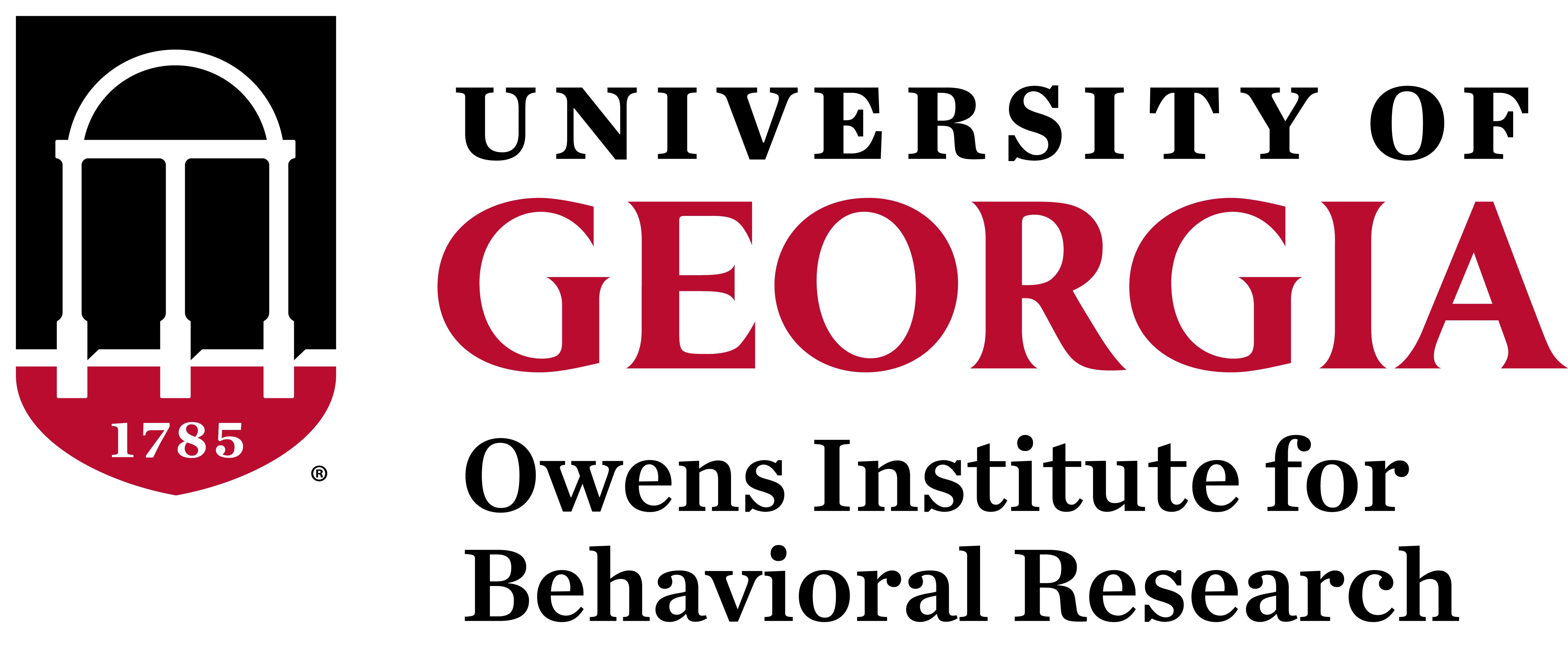
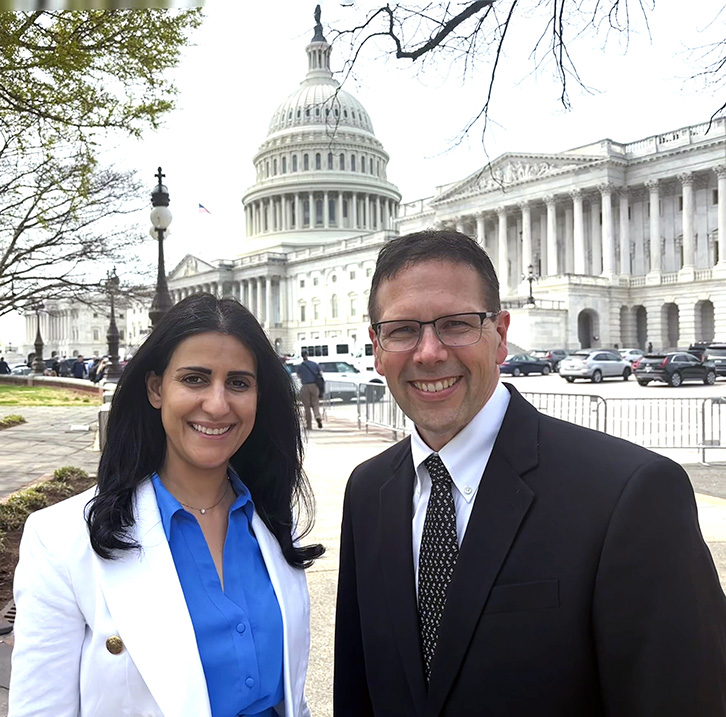
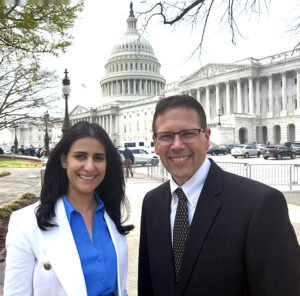 This past April the Consortium of Social Science Associations (COSSA) hosted their annual Social Science Advocacy Day. On Capitol Hill in Washington, D.C., social scientists from across the country converged to talk with lawmakers about the importance of social and behavioral science.
This past April the Consortium of Social Science Associations (COSSA) hosted their annual Social Science Advocacy Day. On Capitol Hill in Washington, D.C., social scientists from across the country converged to talk with lawmakers about the importance of social and behavioral science.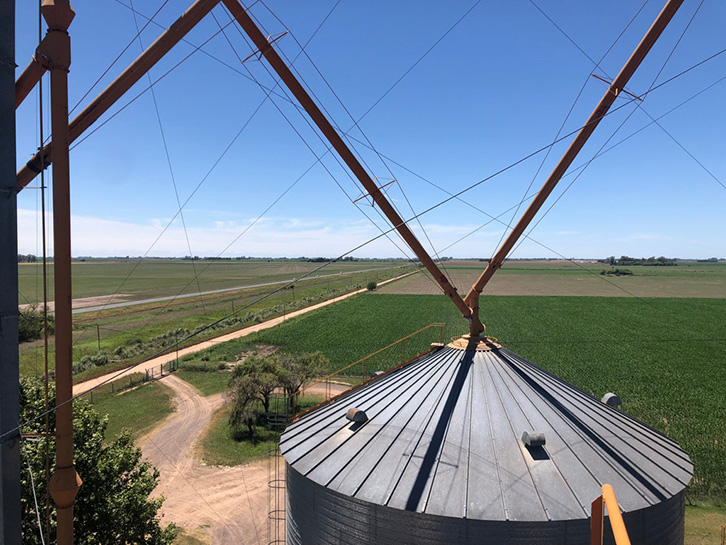
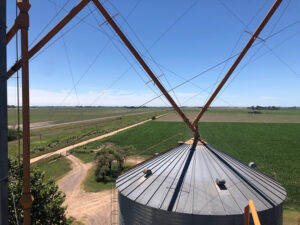 Agricultural biotechnology straddles the line between prosperity and peril, offering both the potential to transform economies and the risk of severe environmental and health consequences. This dichotomy forms the heart of the research project “Prosperity, Plants, and Pesticides: The Dangers and Opportunities of Agricultural Biotechnology,” led by Dr. Pablo Lapegna, an Associate Professor of Sociology and Latin American and Caribbean Studies at the University of Georgia (UGA). With recent grant support from the National Endowment for the Humanities, Lapegna hopes to unravel these complexities through a forthcoming book and a comprehensive online repository, alongside his collaborator Johana Kunin (a professor of anthropology at the Universidad Nacional de San Martin, UNSAM, and a researcher at CONICET, the National Scientific and Technical Research Council, both in Argentina).
Agricultural biotechnology straddles the line between prosperity and peril, offering both the potential to transform economies and the risk of severe environmental and health consequences. This dichotomy forms the heart of the research project “Prosperity, Plants, and Pesticides: The Dangers and Opportunities of Agricultural Biotechnology,” led by Dr. Pablo Lapegna, an Associate Professor of Sociology and Latin American and Caribbean Studies at the University of Georgia (UGA). With recent grant support from the National Endowment for the Humanities, Lapegna hopes to unravel these complexities through a forthcoming book and a comprehensive online repository, alongside his collaborator Johana Kunin (a professor of anthropology at the Universidad Nacional de San Martin, UNSAM, and a researcher at CONICET, the National Scientific and Technical Research Council, both in Argentina).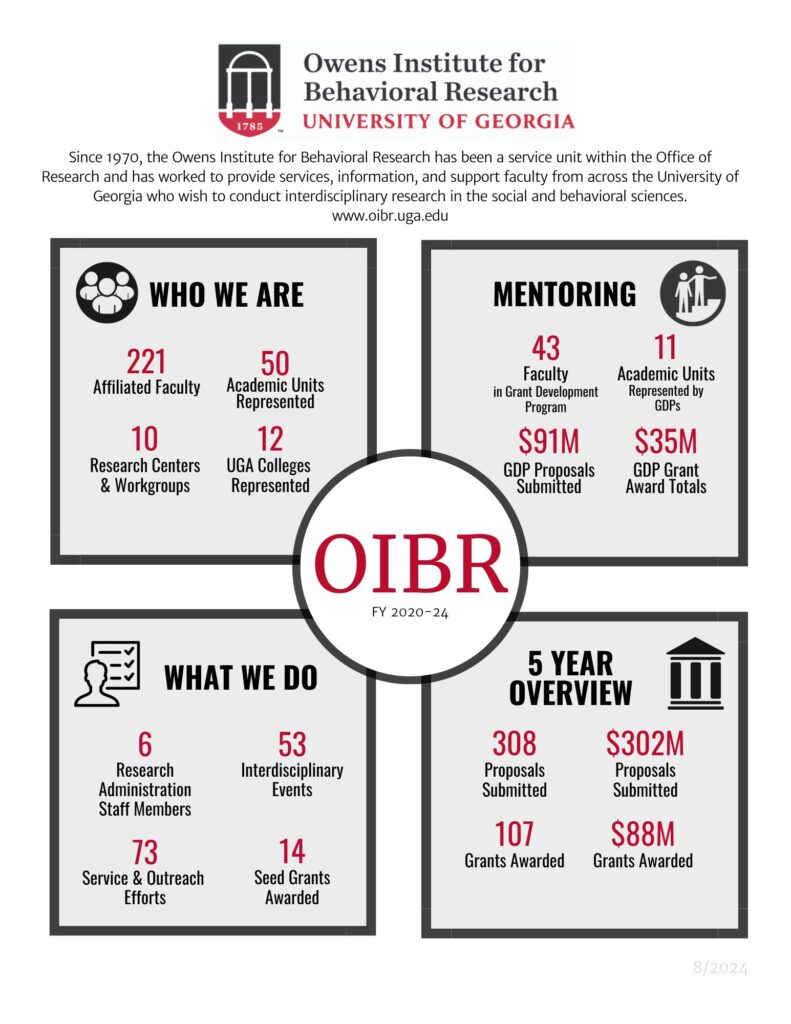
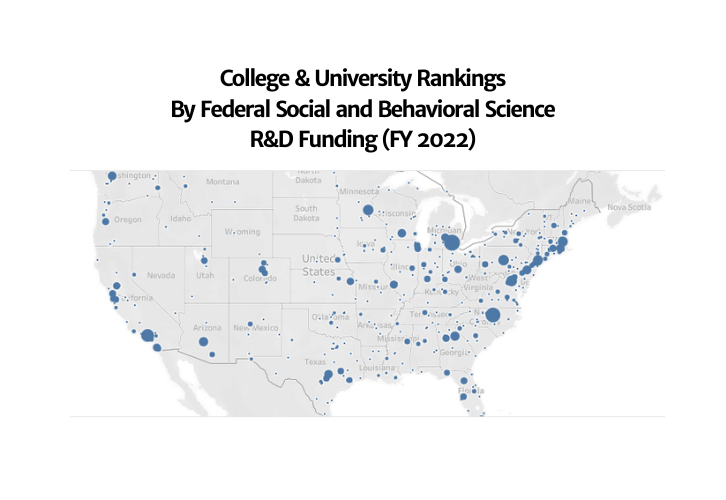
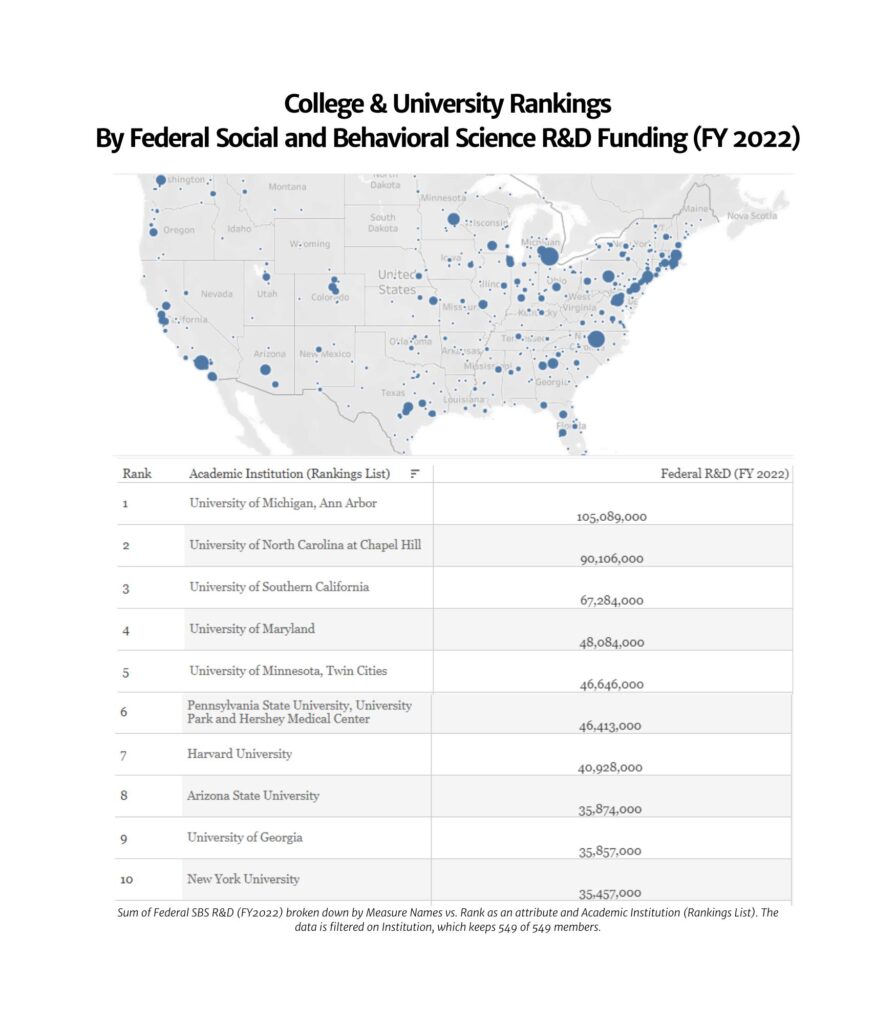 COSSA recently released its annual
COSSA recently released its annual 

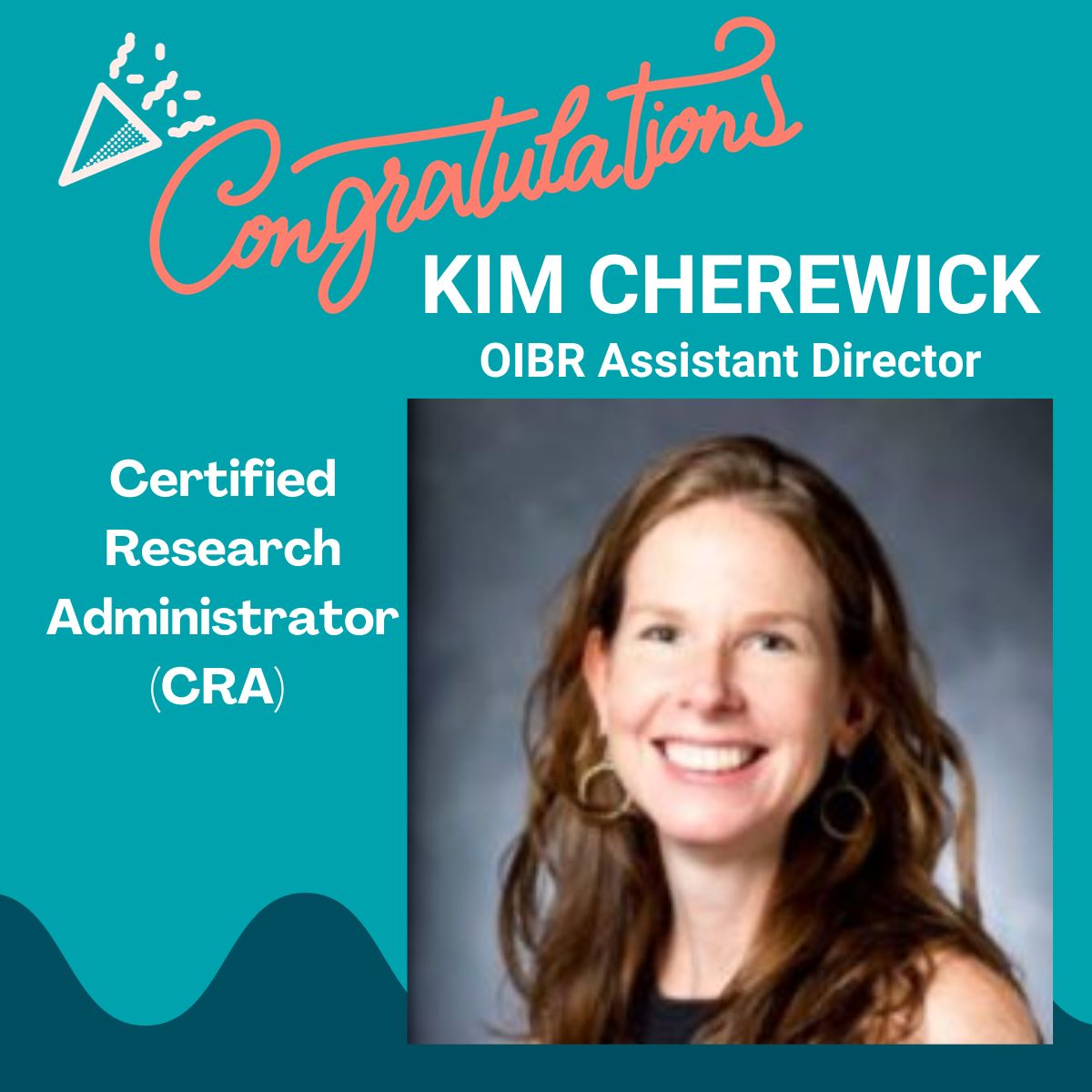
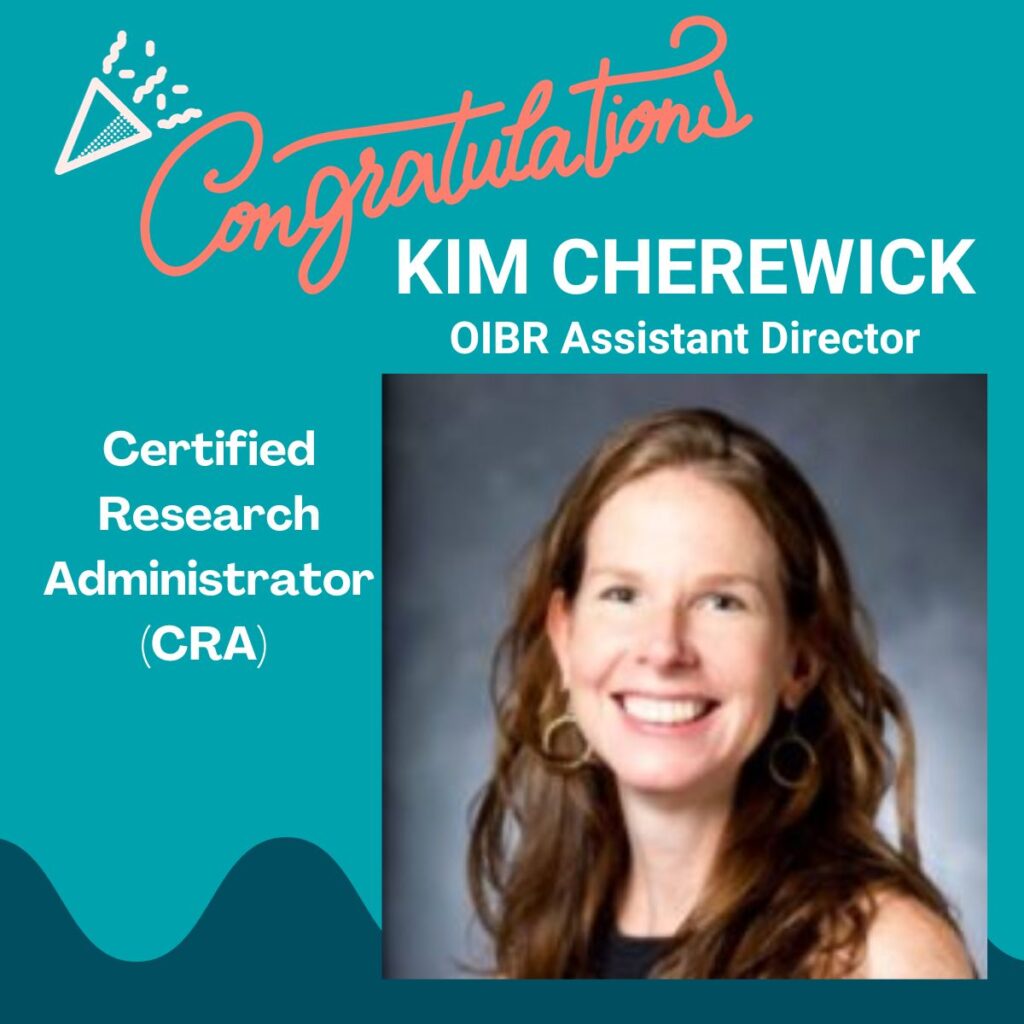 We are proud to announce that Kim Cherewick has recently passed the Certified Research Administrator (CRA) exam. It’s quite a feat to pass this mammoth exam on the first try, but she aced it!
We are proud to announce that Kim Cherewick has recently passed the Certified Research Administrator (CRA) exam. It’s quite a feat to pass this mammoth exam on the first try, but she aced it!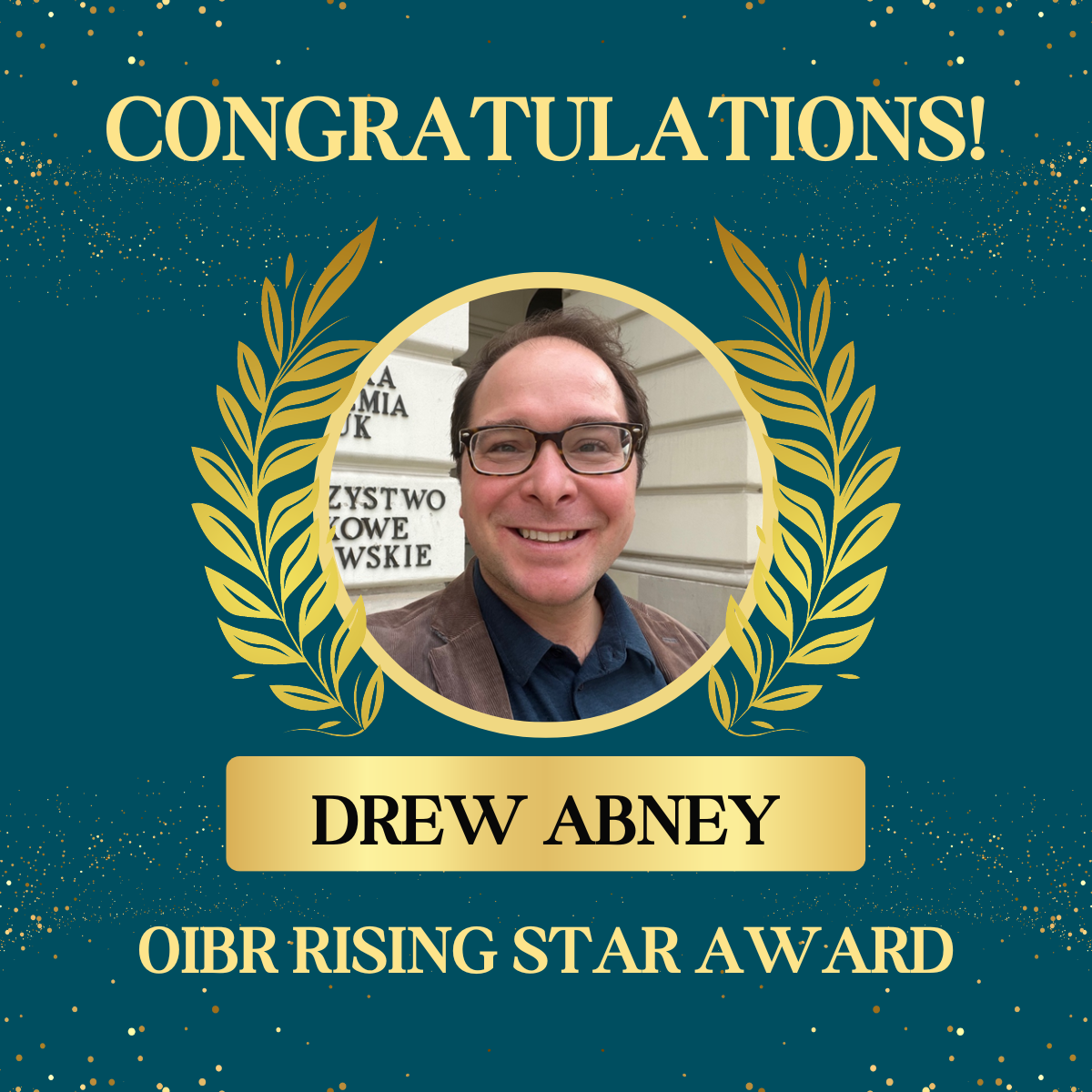
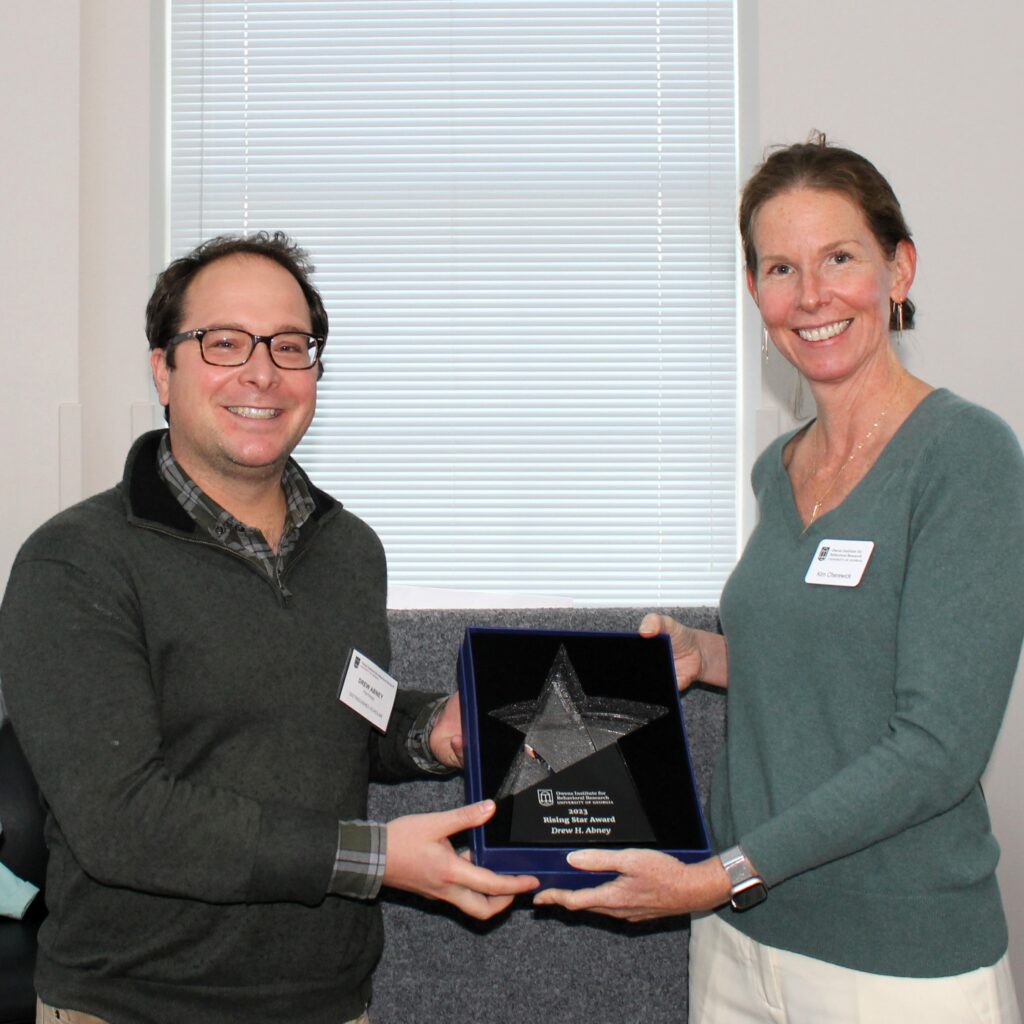 Drew Abney, a developmental psychologist in the Department of Psychology at the University of Georgia, is reshaping the way we understand child development. Using cutting-edge tools and techniques from complexity science, Drew explores how behaviors and social interactions impact the growth journey from infancy to toddlerhood.
Drew Abney, a developmental psychologist in the Department of Psychology at the University of Georgia, is reshaping the way we understand child development. Using cutting-edge tools and techniques from complexity science, Drew explores how behaviors and social interactions impact the growth journey from infancy to toddlerhood.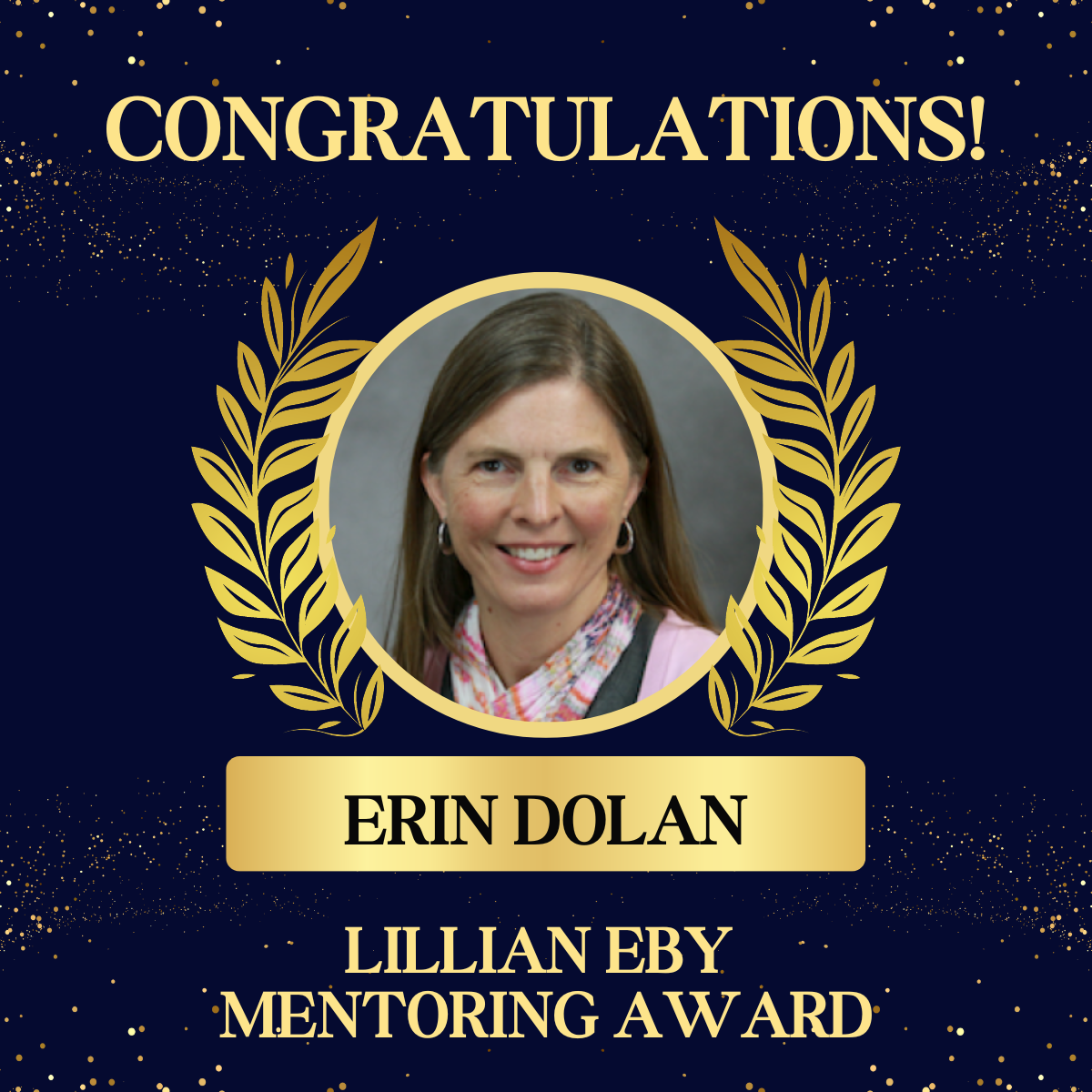
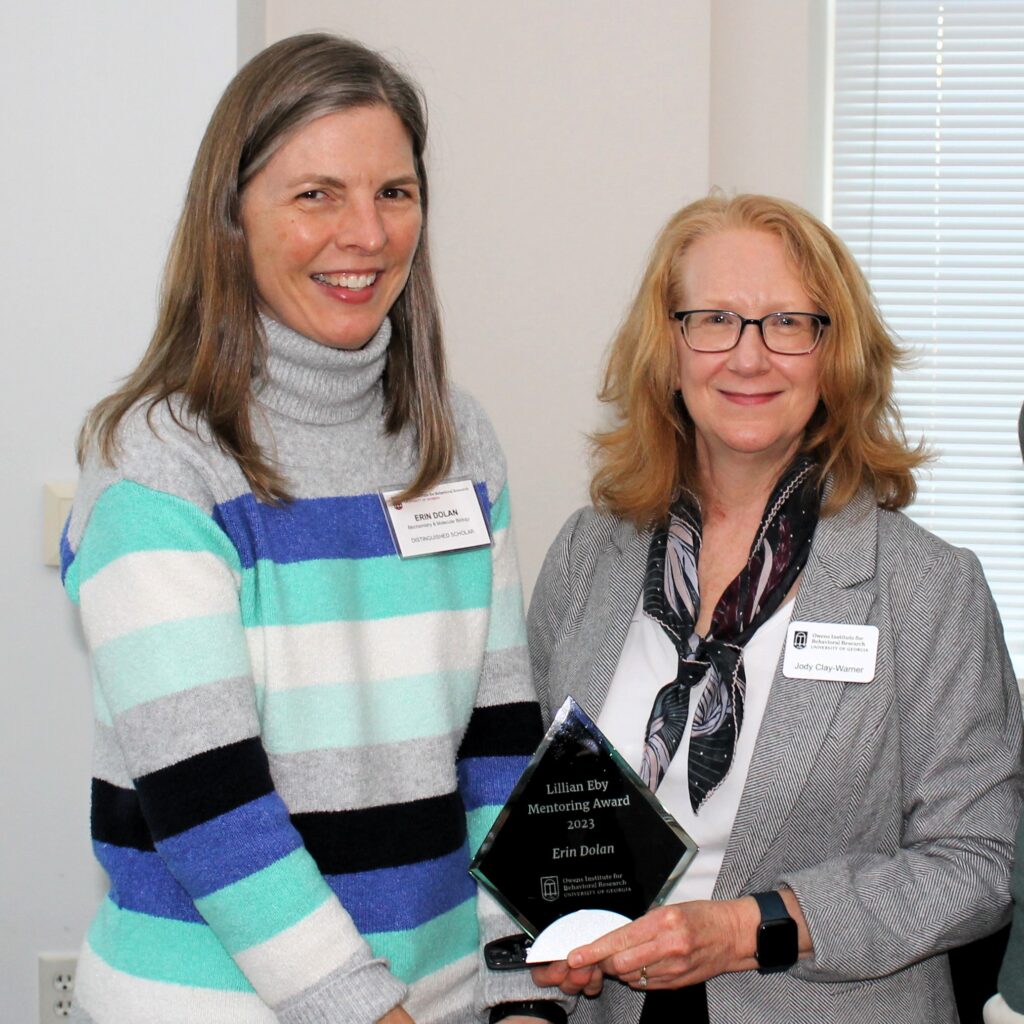 Dr. Erin Dolan, the Georgia Athletic Association Professor of Innovative Science Education in the Department of Biochemistry and Molecular Biology, has been awarded the prestigious OIBR Lillian Eby Mentoring Award.
Dr. Erin Dolan, the Georgia Athletic Association Professor of Innovative Science Education in the Department of Biochemistry and Molecular Biology, has been awarded the prestigious OIBR Lillian Eby Mentoring Award.